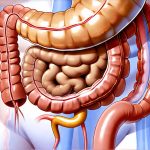Digestive issues are incredibly common, impacting millions of people daily. From occasional bloating and discomfort to more chronic conditions like constipation and IBS, problems with digestion can significantly affect our quality of life. Often, these issues aren’t due to serious underlying diseases but rather stem from everyday habits that unintentionally disrupt the delicate balance of our digestive system. We’ve become a society accustomed to quick fixes and convenience, which frequently comes at the expense of mindful eating practices and lifestyle choices that support optimal gut health.
The good news is that many digestive backups can be prevented – or even reversed – by making relatively small, consistent changes to our daily routines. This isn’t about restrictive diets or complicated regimens; it’s about understanding how our bodies process food and adopting habits that work with our natural systems rather than against them. It’s about recognizing the interconnectedness of what we eat, how we eat, and how we live, creating a holistic approach to digestive wellbeing. This article will explore practical strategies you can integrate into your daily life to promote healthy digestion and minimize discomfort.
The Foundation: Dietary Habits for Smooth Sailing
Our diet is undeniably the cornerstone of digestive health. What we choose to put into our bodies directly impacts how efficiently they function, and a poor diet can lead to inflammation, imbalances in gut bacteria, and ultimately, digestive distress. It’s not just what we eat but also how much and when. Focusing on whole, unprocessed foods is paramount. These foods are naturally rich in fiber – the unsung hero of digestion – which adds bulk to stool, softens it for easier passage, and feeds beneficial gut bacteria. Think fruits, vegetables, whole grains like quinoa and oats, legumes (beans, lentils), and nuts/seeds. Prioritizing fiber intake is one of the most effective things you can do for your digestive system. Understanding foods that help restore pH balance can also be incredibly beneficial.
Beyond simply increasing fiber, variety within your diet is crucial. Different types of fiber support different aspects of gut health, and a diverse range of plant-based foods provides a broader spectrum of nutrients and beneficial compounds. Aim to ‘eat the rainbow’ – incorporating a wide array of colorful fruits and vegetables into your meals. Equally important is hydration. Water is essential for moving food through the digestive tract and preventing constipation. Dehydration can lead to harder stools, making them more difficult to pass. Strive to drink at least eight glasses of water daily, adjusting based on your activity level and climate.
Finally, consider mindful portion control. Overeating puts a strain on your digestive system, leading to bloating, discomfort, and potentially heartburn or acid reflux. Pay attention to your body’s hunger and fullness cues – eating until you’re comfortably satisfied, not stuffed. Smaller, more frequent meals can sometimes be easier for the digestive system to handle than large, infrequent ones. This allows for a more consistent flow of nutrients and reduces the burden on the gut. Avoiding everyday foods that inflame the lower esophageal sphincter is also key to a healthy digestive system.
The Power of Probiotics and Prebiotics
The gut microbiome – the trillions of bacteria residing in our digestive tract – plays an incredibly important role in overall health, impacting everything from digestion and immunity to mood and mental wellbeing. Maintaining a healthy balance within this microbial ecosystem is vital. Probiotics are live microorganisms that, when consumed in adequate amounts, confer a health benefit on the host. They’re found in fermented foods like yogurt (with live cultures), kefir, sauerkraut, kimchi, kombucha, and miso. Supplementing with probiotics can also be an option, but it’s always best to consult with a healthcare professional before starting any new supplement regimen.
Prebiotics, on the other hand, are essentially food for probiotics. They’re types of fiber that our bodies can’t digest, but gut bacteria can thrive on. Good sources include garlic, onions, leeks, asparagus, bananas, oats, and apples. By consuming both probiotics and prebiotics – a combination known as synbiotics – you’re effectively nourishing your gut microbiome and promoting its diversity. This strengthens the digestive system’s ability to process food efficiently and reduces the risk of imbalances that can lead to discomfort or illness.
- Incorporate fermented foods into your diet gradually, starting with small portions to avoid temporary bloating as your gut adjusts.
- Look for yogurt labels specifically stating “live and active cultures.”
- Consider a prebiotic-rich snack like banana slices with almond butter.
The Importance of Chewing & Meal Timing
It sounds simple, but thorough chewing is often overlooked as a crucial component of digestion. When we eat quickly or don’t chew our food adequately, it puts extra stress on the stomach and intestines to break down larger chunks of food. This can lead to indigestion, bloating, and reduced nutrient absorption. Chewing breaks down food mechanically, making it easier for digestive enzymes to do their job. Aim to chew each bite thoroughly – until it’s almost liquid – before swallowing. Understanding eating habits that gradually damage the esophagus can help you avoid them.
Meal timing also plays a significant role. Eating large meals right before bedtime can disrupt sleep and increase the risk of heartburn or acid reflux, as gravity isn’t working in your favor while you lie down. Try to finish eating at least 2-3 hours before going to bed. Similarly, avoid skipping breakfast. Starting your day with a nourishing meal helps kickstart your metabolism and sets the tone for healthy digestion throughout the day. Regular mealtimes – rather than erratic snacking – also help regulate your digestive system and prevent overeating. If you experience discomfort, understanding burning sensations without eating anything may provide some insight.
- Practice mindful eating: pay attention to the texture, flavor, and aroma of your food.
- Avoid distractions while eating (TV, phone, work) to focus on the process.
- Consider a small walk after meals to aid digestion, but avoid strenuous exercise immediately after eating.
Lifestyle Factors That Impact Digestion
Digestion isn’t just about what happens in our gut; it’s influenced by our overall lifestyle choices. Stress, sleep deprivation, and lack of physical activity can all negatively impact digestive function. Chronic stress, for example, triggers the “fight-or-flight” response, which diverts blood flow away from the digestive system and towards muscles, hindering digestion. Similarly, inadequate sleep disrupts hormonal balance and weakens the immune system, both of which can affect gut health. Prioritizing stress management and adequate rest are essential components of a healthy digestive system. Evening routines that ease digestive stress can be very helpful.
Regular physical activity is also crucial. Exercise helps stimulate intestinal contractions, moving food through the digestive tract more efficiently. It also reduces stress and improves mood, indirectly benefiting digestion. You don’t need to run marathons; even moderate exercise like walking, yoga, or swimming can make a significant difference. The key is consistency – incorporating physical activity into your daily routine.
Finally, pay attention to your posture. Slouching compresses the abdominal organs, hindering digestion. Maintaining good posture – sitting and standing upright – allows for optimal organ function and promotes healthy digestive flow. These seemingly small lifestyle adjustments can have a profound impact on your overall wellbeing and digestive health. Additionally, being aware of digestion impacts when eating while distracted is helpful.
This information is intended for general knowledge and informational purposes only, and does not constitute medical advice. It is essential to consult with a qualified healthcare professional for any health concerns or before making any decisions related to your health or treatment.


















